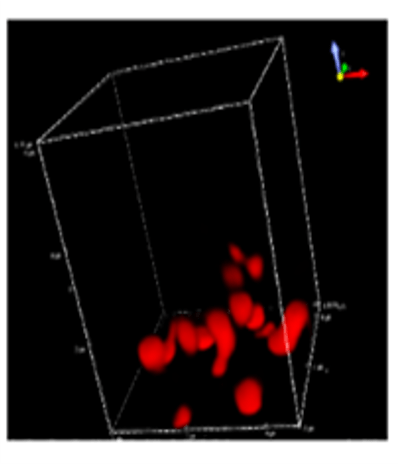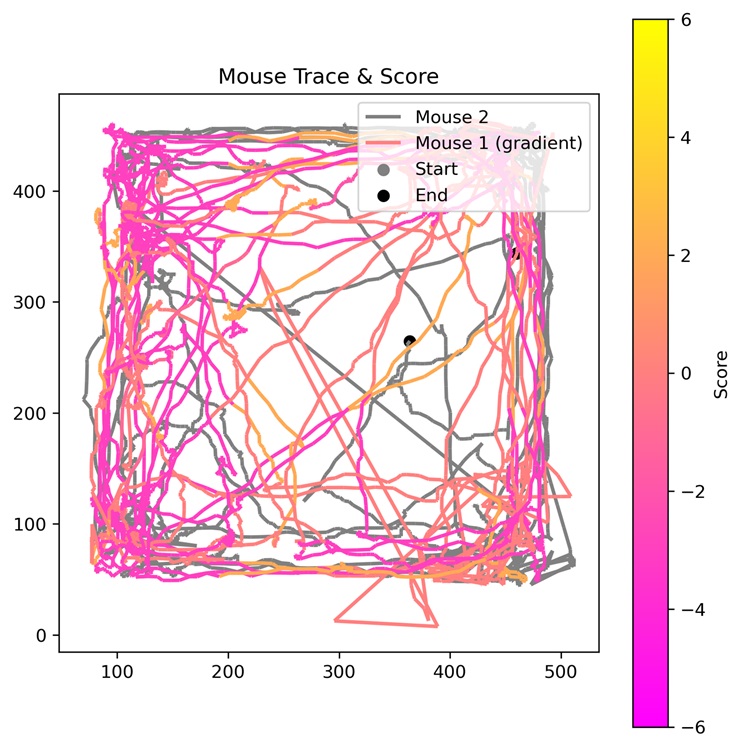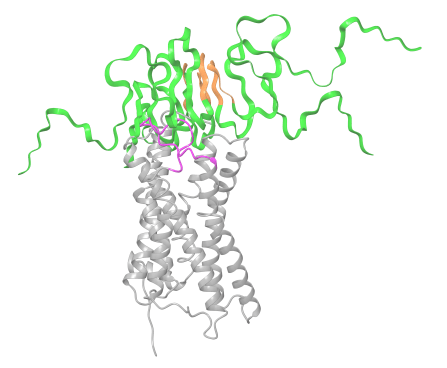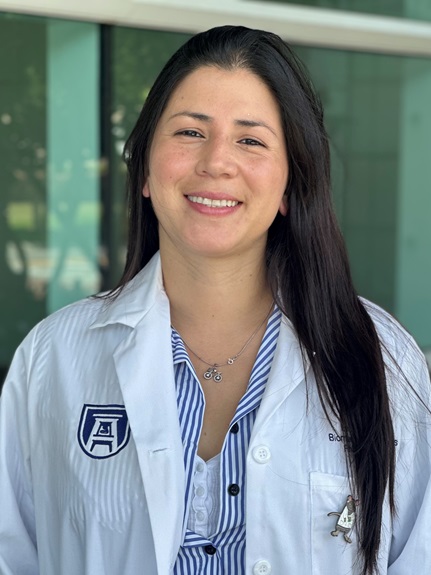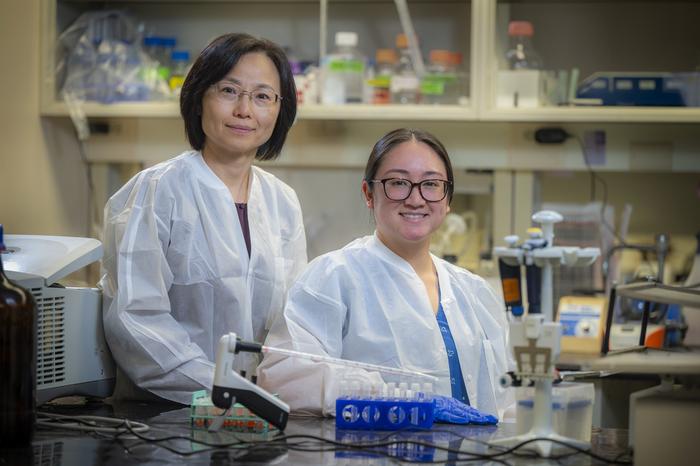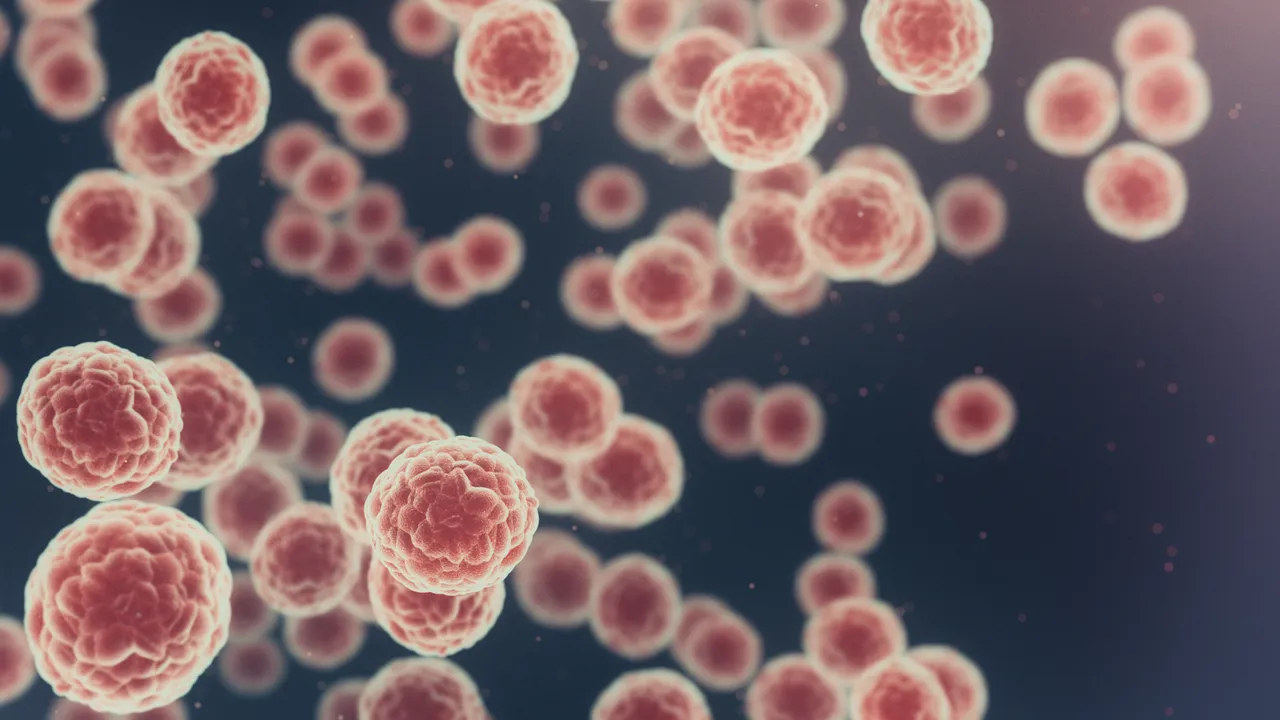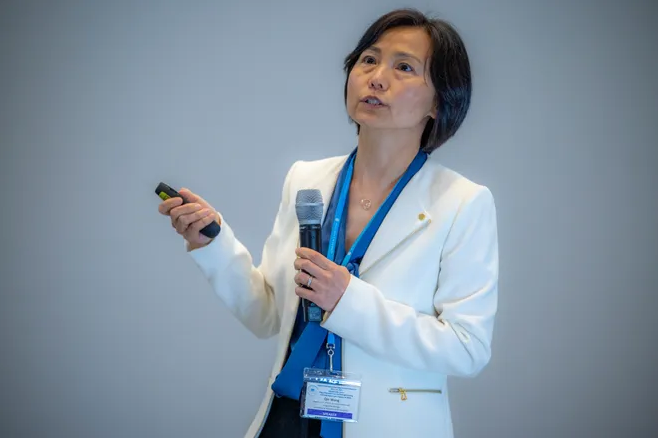Selected Publications
Saggu S, Bai A, Aida M, Rehman H, Pless A, Ware D, Deak F, Jiao K, Wang Q (2025) Monoamine alterations in Alzheimer’s disease and their implications in comorbid
neuropsychiatric symptoms. GeroScience. 47(1):457-482.
Saggu S, Pless A, Dew E, Ware D, Jiao K, and Wang Q (2025) Monoamine Signaling and Neuroinflammation: Mechanistic Connections and Implications
for Neuropsychiatric
Disorders. Front. Immunol. Volume 16 - 2025 | doi: 10.3389/fimmu.2025.1543730.
Rehman H, Yan S, Saggu S, Aida M, Zhang F, Shu Y, Jones A, Trang A, Dew E., Zhi W.,
Claeboe ET, Baucum AJ, Wu G, Jiao K, Wang Q (2025) The PKCi-β-arrestin2 axis disrupts
SORLA retrograde trafficking, driving its degradation and amyloid pathology in Alzheimer’s
disease. Mol Neurodegener. 20:76.
Zhang C, Aida M, Saggu S, Yu H, Zhou L, Jiao K, Liu R, Wang L, Wang Q (2024) Androgen deprivation therapy exacerbates Alzheimer's associated cognitive
decline via increased brain immune cell infiltration. Sci. Adv. Jun 21;10(25):eadn8709.
Pless A, Ware D, Saggu S, Rehman H, Morgan J, Wang Q. (2023) Understanding neuropsychiatric symptoms in Alzheimer's disease: challenges
and advances in diagnosis and treatment. Front Neurosci. 2023;17:1263771.
Qin H, Zhou L, Haque F, Martin-Jimenez C, Trang A, Benveniste E, Wang Q. (2023) Diverse Signaling Mechanisms and Heterogeneity of Astrocyte Reactivity in Alzheimer’s
Disease. J Neurochem. 168(10):3536-3557.
Saggu S, Chen Y, Wang H, Cottingham C, Zhang S, Augelli-Szafran C, Jiao K, Lu X and
Wang Q. (2022) Ligand-selective activation of cofilin leads to distinct regulation of fear
memory reconsolidation by α2AR agonists. Mol Psychiatry. 2023 Feb;28(2):588-600.
Li S, Fang Y, Zhang Y, Song M, Zhang X, Ding X, Yao H, Chen M, Sun Y, Ding J, Wang Q, Lu M, Wu G, Hu G (2022) Microglial NLRP3 inflammasome activates neurotoxic astrocytes
in a mouse model of depression. Cell Rep. 41(4):111532. doi: 10.1016/j.celrep.2022.111532.
Saggu S, Chen Y, Pizarro D, Law W, Pati S, McMahon L, Jiao K and Wang Q (2022) Peptide blocker of the adenosine A1R-neurabin interaction displays strong
anti-seizure effects and reduces epileptic activities in an Alzheimer’s model. JCI Insight. Jun 8;7(11):e155002. doi: 10.1172/jci.insight. 155002
Cunningham J, Sheppard LD, Listik E and Wang Q (2022) Self-paced five-choice serial reaction time-task for mouse behavior testing.
bio-101. https://en.bio protocol.org/bio101/ e4388.
Hao X, Li Z, Li W, Katz J, Michalek S, Barnum SR, Pozzo-Miller L, Saito T, Saido T,
Wang Q, Roberson ED, Zhang P. (2022) Periodontal Infection Aggravates C1q-Mediated Microglial
Activation and Synapse Pruning in Alzheimer’s Mice. Frontiers in Immunology. 01 Feb. 2022.
Yan S, Thienthanasit R, Chen D, Engelen E, Bruhl J, Crossman D, Kesterson R, Wang Q, Bouazoune K, and Jiao K (2020) CHD7 regulates cardiovascular development through
ATP–dependent and -independent activities. Proc Natl Acad Sci, 117:28847-28858.
Zhang Y, Song L, Dong H, Kim D, Sun Z, Boger H, Wang Q and Wang H. (2020) Spinophilin -deficient mice are protected from diet-induced obesity
and insulin resistance. AJP-Endocrinology and Metabolism. 319: E354–E362.
Kumar SNK, Devarajan A, Karan G, Suresh S, Wang Q, van Groen T, del Monte F, Rajasekaran NS. (2020) Reductive stress promotes protein
aggregation and impairs neurogenesis. Redox Biol. 37:101739.
Zhang F, Gannon M, Chen Y, Yan S, Zhang S, Feng W, Tao J, Sha B, Liu Z, Saito T, Saido
T, Keene CD, Jiao K, Roberson ED, Xu H, and Wang Q (2020) Amyloid β rewires norepinephrine signaling to activate the pathogenic GSK3β/tau
cascade. Science Transl Med. Vol. 12, Issue 526, eaay6931.
Gannon M, Wang Q (2019). Complex Noradrenergic Dysfunction in Alzheimer's Disease: Low Norepinephrine
Input is Not Always to Blame. Brain Res. 1702, 12-16.
Yim Y, Betke K, McDonald WH, Gilsbach R, Chen Y, Hyde K, Wang Q, Hein L, and Hamm H (2019) The in vivo specificity of synaptic Gβ and Gγ subunits
to the α2a adrenergic receptor at CNS synapses. Sci Rep. 9:1718.
Cottingham C, Che P, Zhang W, Wang H, Wang RX, Percival S, Birky T, Zhou L, Jiao K
and Wang Q (2017) Diverse arrestin-recruiting and endocytic profiles of tricyclic antipsychotics
acting as direct a2A adrenergic receptor ligands. Neuropharmacology, 116, 38-49.
Reyes B, Carvalho AF, Szot P, Kalamarides D, Wang Q, Kirby L, Van Bockstaele E (2017) Cortical adrenoceptor expression, function and
adaptation under conditions of cannabinoid receptor deletion. Exp Neurol., 292, 179-192.
Chen Y, Booth C, Wang H, Wang RX, Terzi D, Zachariou V, Zhang J, Jiao K and Wang Q (2017) Effective attenuation of adenosine A1R signaling by neurabin requires neurabin
oligomerization. Mol Pharm. 92, 630-639.
Scarduzio M, Zimmerman CN, Jaunarajs KL, Wang Q, Standaert DG and McMahon L (2017) Elevated striatal cholinergic tone drives dopamine
D2 receptor mediated paradoxical excitation of cholinergic interneurons in DYT1 dystonia.
Exp Neurol. 295, 162-175.
Zhang F, Gannon M, Chen Y, Zhou L, Jiao K and Wang Q (2017) The amyloid precursor protein modulates α2A adrenergic receptor endocytosis
and signaling through disrupting arrestin 3 recruitment. FASEB J. 31, 4434-4446.
Wu H, Cottingham C, Wang H, Che P, Wang RX, Jiao K and Wang Q (2017) Age-dependent differential regulation of anxiety- and depression-related behaviors
by neurabin and spinophilin. PLoS One. 12(7):e0180638.
Chen Y, Peng Y, Che P, Gannon M, Liu Y, Li L, Bu G, van Groen T, Jiao K and Wang Q (2014) alpha2A adrenergic receptor promotes amyloidogenesis through disrupting APP-SorLA
interaction. Proc Natl Acad Sci, 111, 17296-17301.
Wang Q, Zhao J, Brady AE, Feng J, Allen PB, Lefkowitz RJ, Greengard P and Limbird LE (2004)
Spinophilin blocks arrestin actions in vitro and in vivo at G protein-coupled receptors. Science 304, 1940-1944 (Research Article).

